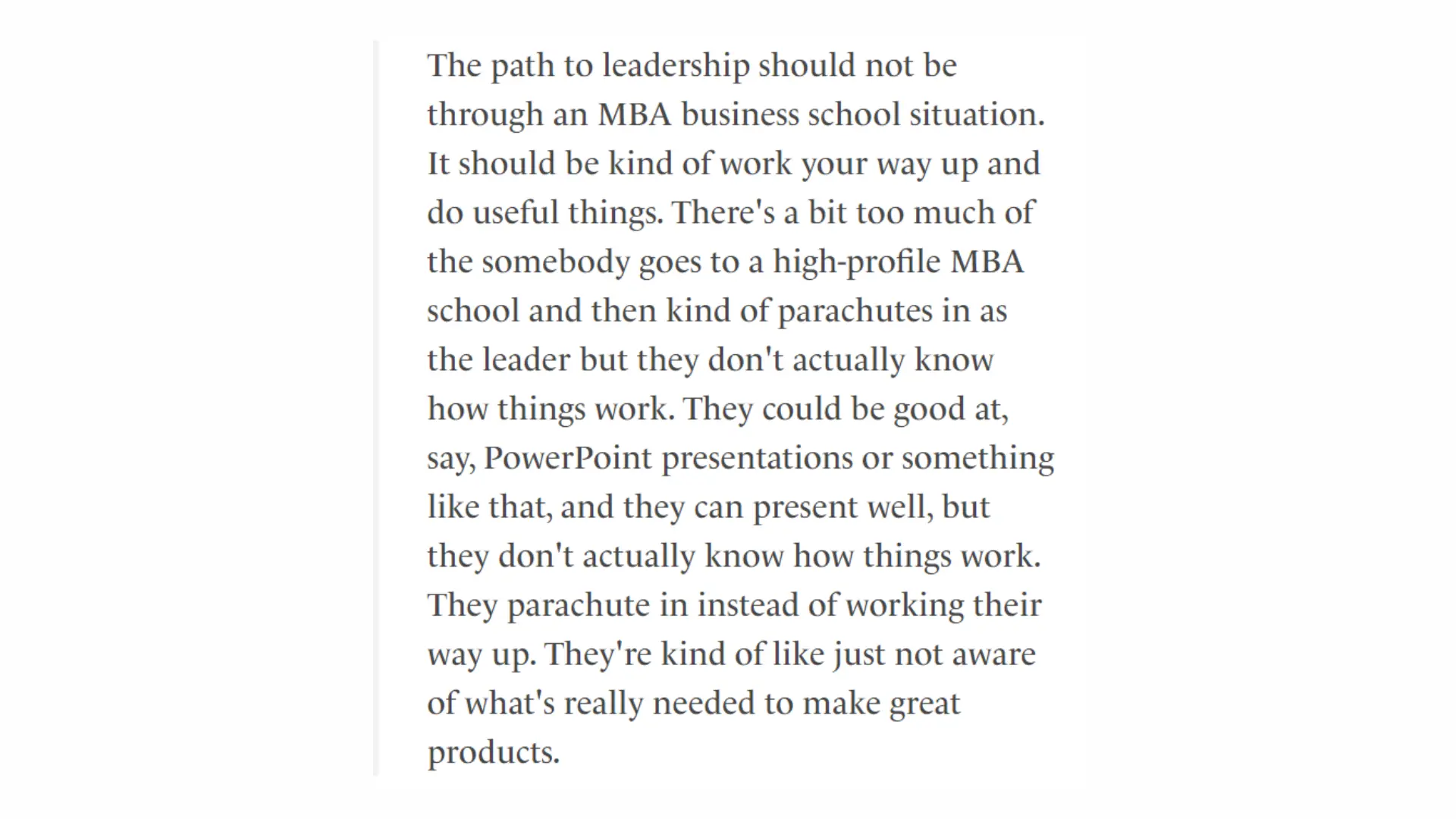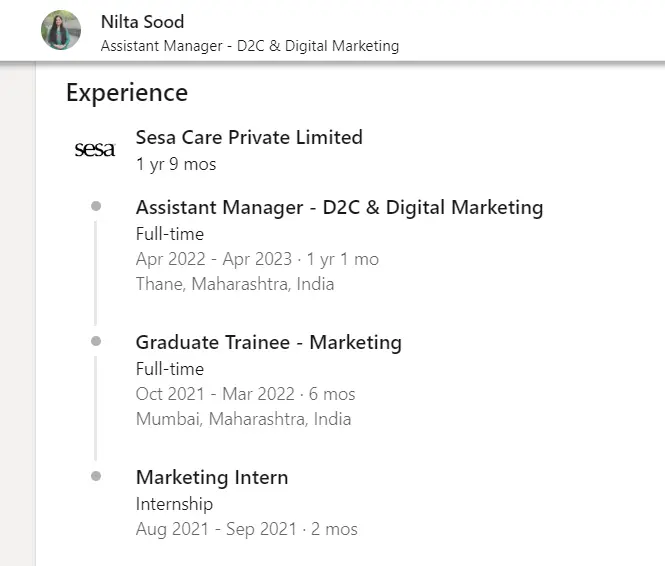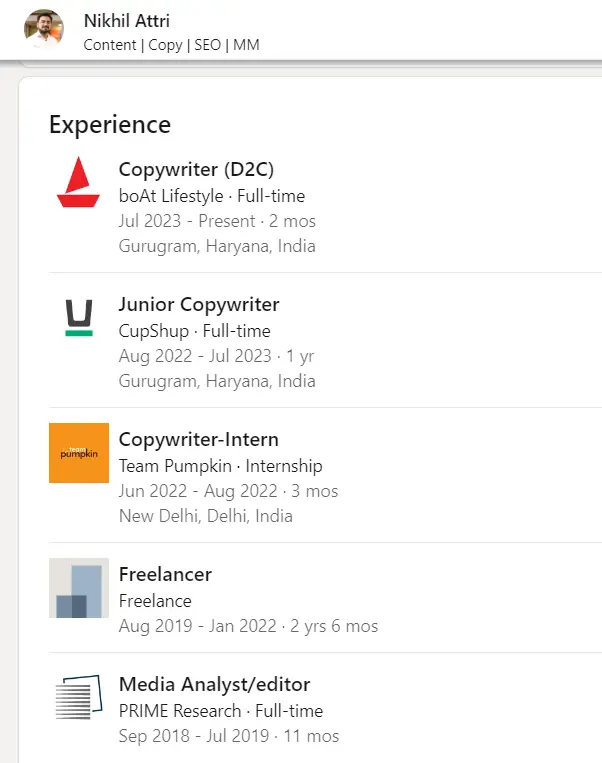After B.Com Which Course is the Best to Enter the Corporate World?
Table of contents
- Key Takeaways from the Blog:
- Masters in Business Administration (MBA)
- Kraftshala’s Marketing Launchpad
- Airtribe’s Product Management Launchpad
- Chartered Accountancy (CA)
- Chartered Financial Analyst
- Frequently Asked Questions

Even if all the courses in the world were to compete with each other, we still wouldn’t know which course could be considered the best. Why? Because that’s subjective to each person’s preferences. Maybe, someone considers a company’s package to be the best outcome, maybe someone else considers time.
Now, what we can tell you is that if you’re looking to opt for the best courses after your B.Com that can get you a start in your career, this blog lists some reputed courses for you to consider!
Key Takeaways from the Blog:
If you’re confused about where to go from B.Com, consider this blog the way out. The blog answers the question “What after B.Com” and lists out some of the best, reputed courses for you.
The blog contains:
- All About Masters in Business Administration: Pros and Cons, Best B-Schools to Get into, Average Fees.
- Kraftshala’s Marketing Launchpad to Get You Entry-Level Marketing Jobs to Gain Hands-On Experience and its Fees, Pros and Cons, if Any.
- Airtribe’s Product Management Launchpad for the Problem Solvers and Jack of All Cards, its Fees, and Reviews.
- Chartered Accountancy, Their Exams, What They Mean
- Chartered Financial Analyst, Their Course Structures, Exams, What They Mean
Masters in Business Administration (MBA)

For anyone looking to enter the corporate world, MBA becomes their first default choice. And why not, it gives you a great package, and recognition, and is aligned with your B.Com degree. But here’s a catch: you get to reap all the benefits of an MBA if you get into Tier 1 B-schools like the IIMs, SP Jain, ISB, XLRI, FMS, etc.
Pros of Choosing an MBA:
MBAs Follow A Similar Curriculum to B.Com But Go Deeper: Whatever you’ve been taught in your B.Com about business, leadership and management, finance, banking, marketing, and Economics, MBAs teach you these too. Only, here they go three levels deeper through case studies. So, you apply all of that knowledge to practice and grab management positions during placements.
MBAs Help You Grab Great Packages: An MBA degree from a premium institute helps you grab packages of a minimum of 12 LPA, and can go as high as crores.
You Get Global Exposure: Getting yourself admitted to a premium B-School means exposure to international experiences, such as study tours, exchange programs, or internships abroad. This can provide you with valuable insights into global business practices and cultural diversity, which are becoming increasingly important in the interconnected world.
MBA Means Networking: MBA programs attract professionals from diverse backgrounds, industries, and countries. Engaging with this diverse network can help you open doors to new career opportunities and valuable connections in the business world.
Average Fees of an MBA Program:
If you’re planning to go to a Tier 1 B-school in India, the course fees for two years can range from INR 2 lakhs up to INR 40 lakhs.
Is An MBA Worth It?
Well, that depends on how you want to shape your career. MBAs are a means to boost someone’s package, rank up their position in a company, and get access to a premium network that can help you grow in your career.
Some people do MBA even to start their own company, mainly to learn how businesses work, network with the right people, and get themselves acquainted with a brand name, if they do it from Tier 1 B-Schools. This helps them get funds for their start-ups.
But, if you want to build an epic product, and want to devote your career to only building, MBA might not be for you. Here’s a controversy of MBA. Elon Musk once said…

Kraftshala’s Marketing Launchpad

Kraftshala’s marketing launchpad is a digital marketing course that trains and places students with a minimum CTC of 4.5 LPA. This course was first launched in November 2021 and since then, we have placed over 1200+ students in marketing roles with a great potential to grow.
See for yourself:
Nilta Sood, a student from the first batch of the Marketing Launchpad is an Assistant Manager at Sesa Care today.

Another student, Nikhil Attri, from Marketing Launchpad’s Batch 6 started with an agency called CupShup. A year later, he switched to Aman Gupta’s Company, BoAt with a 40% hike in salary!

About Kraftshala’s Marketing Launchpad:
- This digital marketing course is created by Industry Experts who’ve worked for Airbnb, Nestle, Hindustan Unilever, and Spotify. They have leveraged their experiences to create an entire curriculum that’s 100% live!
- Here, students spend over 700 hours in training where they get to work on brands’ case studies for creating Paid Ads Campaigns, SEO Strategies, Social Media Marketing Strategies, Content Marketing Strategies, and E-Commerce Marketing Strategies depending on their chosen specialization. What this means is that you get to learn practical skills by working on these case studies that make you job ready in just 22 weeks!
- One more aspect of this course is its Human Skills Training. Here, they teach you how to crack interviews and get the job of your choice. Not just that, the training involves teaching you to be a professional on the job.
How Much Does the Course Cost?
The course costs INR 1,05,000/- which is also 60% refundable if you don’t get a job that pays a minimum of INR 4.5 LPA.
Any Cons of the Course?
This course offers an intensive training program aimed at preparing you for the job market. It involves long hours of participation (from 10 am to 8:30 pm) with numerous live sessions and team or individual exercises.
Do check out our part-time course: PT Digital Marketing Course
Other than that, gaining entry into this course might be a little challenging due to a screening test that evaluates your analytical and logical skills. However, for ambitious individuals, these challenges should not deter you, as every minute you invest in this course yields a significantly higher return on your investment.
The extensive hours of dedication during the course will help you develop the ability to excel in demanding work hours once you enter the job field.
Read some of the reviews from their Alumni here: Kraftshala Reviews
Airtribe’s Product Management Launchpad

One myth about product management is that the role requires you to have a technical background but let’s break that. While having a technical background helps you understand the technical aspects when dealing with software developers or having a rapport with them, ultimately your work will come down to creating a product that sells to users.
Anyway, maybe you’re someone who possesses skills like having a deep sense of users, and market, and identify as a generalist. Or maybe you like to solve problems. If that rings a bell, product management could be just the right fit for you! And that’s where Airtribe fits in.
About Airtribe’s Product Management Launchpad:
- This Product Management Course is designed for both freshers and people with work experience. It’s a 12-week, community-led program where you learn from Experts working in companies like Google, Meta, Razorpay, Cred, and more.
- They have flexible timings where you only devote 10-12 hours per week and attend over 20 live sessions in 12 weeks.
- A standout of the program is that it gets you job job-ready by helping you create your product portfolio, and prep you through mock interviews to help you crack any PM role with an average CTC of 16-20 LPA.
- Over the course of 12 weeks, you learn the fundamentals of product management, market research, and user experience, and learn to use tools like Retool, Figma, and so much more. See here.
Find out more about the course from the alumni: Read Reviews
How Much Does the Course Cost?
The course costs INR 44,999 – INR 60,000 depending upon if you’re an early bird or a regular. If you get accepted to the course, you have a limited time to avail of the early bird discount of up to INR 10,000. The fee then becomes INR 44,999. If the period is over, you pay INR 60,000.
Any Cons of the Course?
One thing that we noticed is that the course doesn’t guarantee placements but rather assists you with job openings. This means they will share job openings with you but you’ll have to do the groundwork of cracking it which can be freeing too.
Apart from that, you do get access to their network of product managers which you can take advantage of in terms of getting referrals!
Chartered Accountancy (CA)

Chartered Accountancy (CA), often considered a prestigious profession by Indians refers to the practice of accounting, auditing, financial management, taxation, and other related financial activities. As a Chartered Accountant, you will be a highly skilled professional who provides a wide range of financial services to individuals, businesses, organizations, and even the Government.
How to Become a Chartered Accountant?
To become a certified Chartered Accountant, you need to take some exams conducted by the Institute of Chartered Accountants of India (ICAI) to be eligible for a three-year training program.
Following is the roadmap to becoming a Chartered Accountant.
- Take the Common Proficiency Test (CPT): This is the entry-level exam for those who have completed their 10+2 schooling. The exam covers subjects like Fundamentals of Accounting, Mercantile Law, General Economics, and Quantitative Aptitude.
- Next Step: Integrated Professional Competence Course (IPCC): After passing the CPT or qualifying under the direct entry route, you need to clear the IPCC, which includes two groups of exams. It covers subjects like Accounting, Law, Costing, Taxation, Ethics, and Auditing.
- Get the Three-Year Practical Training: If you have passed either CPT or IPCC, you can undergo practical training for three years under a qualified Chartered Accountant or within a recognized organization.
- Final Examination: After completing the practical training and clearing Group I of IPCC, you can appear for the CA Final Examination. It consists of two groups of exams covering subjects like Financial Reporting, Strategic Financial Management, Advanced Auditing, Direct and Indirect Taxation, and more.
- ICITSS (IT and Soft Skills) Training: After the final exam, you need to undergo Information Technology (IT) and Orientation training programs during their practical training period.
- Advanced Integrated Course on Information Technology and Soft Skills (AICITSS): Finally, you need to complete this course after clearing Group I of the CA Final Examination.
Chartered Financial Analyst

The Chartered Financial Analyst (CFA) designation is a globally recognized professional credential for individuals working in the investment management and finance industry. The CFA Institute, a global association of investment professionals, offers it.
The CFA program has a rigorous curriculum, one that they are renowned for. They also have high ethical standards. The program is designed to provide you with a deep understanding of investment analysis, portfolio management, and related financial topics.
How to Become A Chartered Financial Analyst?
Like CA, to become a Chartered Financial Analyst (CFA), you need to go through a series of exams, and meet certain educational and work experience benchmarks.
- Education: You must have a bachelor’s degree from an accredited institution or have equivalent education. There is no specific undergraduate major required, but a strong background in finance, economics, or related fields is an advantage.
- Work Experience: You need to have relevant work experience in the investment industry. This typically amounts to at least four years of professional experience in investment decision-making roles.
- CFA Exams: You need clear the CFA exams. The program consists of three levels of exams:
- Level I: Focuses on basic knowledge of investment tools, with topics like ethical and professional standards, quantitative methods, economics, financial reporting and analysis, corporate finance, and more.
- Level II: Emphasizes asset valuation techniques and includes topics like equity investments, fixed income, derivatives, alternative investments, and portfolio management.
- Level III: Focuses on portfolio management and wealth planning, with topics like portfolio management and wealth planning, ethics and professional standards, and case studies.
- Ethical Standards: The CFA program places a strong emphasis on ethical and professional standards in the investment industry
5. Exams Format: The exams are challenging and consist of multiple-choice questions, item set questions, and constructed response (essay) questions. The Level I exam is offered twice a year, while the Level II and Level III exams are offered once a year
6. Passing the Exams: Candidates must pass each level sequentially, and the pass rates for each level tend to be relatively low due to the difficulty of the exams
Earning the CFA designation demonstrates a high level of expertise in investment analysis and portfolio management.
If you become a CFA charter holder, you will get to work in roles such as portfolio manager, investment analyst, research analyst, risk manager, and financial advisor. The CFA program is widely respected in the finance industry and is considered valuable for those pursuing careers in investment management, asset management, and related fields
Frequently Asked Questions
Q.1 What is the next step after B.Com
A. After completing a Bachelor of Commerce (B.Com) degree, you have several potential next steps depending on your career goals and interests.
Some common choices that we have seen are:
- Master’s degree (M.Com) in Commerce or related fields like finance, accounting, business administration, economics, or international business.
- Or an MBA in similar fields.
Another common option is to enroll in professional certification programs to enhance your career prospects and expertise in specific areas of commerce and finance. Like:
- Chartered Accountancy (CA),
- Chartered Financial Analyst (CFA),
- Certified Public Accountant (CPA), or
- Certified Management Accountant (CMA)
We have also seen some graduates opt to enter the workforce directly, seeking job opportunities in accounting, finance, banking, consulting, marketing, or other business-related roles.
Exploring internships, entry-level positions, or specialized training programs can help you gain practical experience and establish a strong foundation for your career growth. If you’re interested in getting entry-level jobs with training, check out this digital marketing course with placement
Q.2 Which job is best after B.Com? What could be the maximum salary you can get?
A. Some popular job roles after B.Com include roles in accounting, financial analysis, banking, taxation, auditing, and corporate finance. You could also consider opportunities in marketing, human resources, business development, and administrative roles.
The salary after B.Com can vary significantly based on factors such as the specific job role, industry, location, company size, your skills, and experience.
Entry-level positions might start with salaries ranging from around ₹2 to ₹5 lakhs per annum, depending on these factors. As you gain experience and expertise, your salary can increase over time. Kraftshala’s digital marketing course, on the other hand, provides entry-level digital marketing jobs of CTC 4.5 – 9 LPA
Q.3 Is an MBA good after a B.Com? Which is the best?
A. Pursuing an MBA after completing a B.Com is almost always a great way to get ahead in the corporate world. An MBA provides you with a comprehensive understanding of business management, leadership, and strategic decision-making, complementing the foundational knowledge gained during your B.Com studies.
Along with this, an MBA offers you with lifetime access to a premium network, one that can help you advance your career in the future. It can enhance your career prospects, open doors to higher-level positions, and equip you with valuable skills to excel in various industries.
But the advantages of an MBA are limited to the prominent B-Schools of India. Like the Indian Institutes of Management (IIMs), Indian School of Business (ISB), XLRI, FMS, and other reputed business schools that offer top-tier MBA programs in India.
Selecting the best MBA program depends on factors such as your specialization preference, location, budget, and long-term career aspirations



